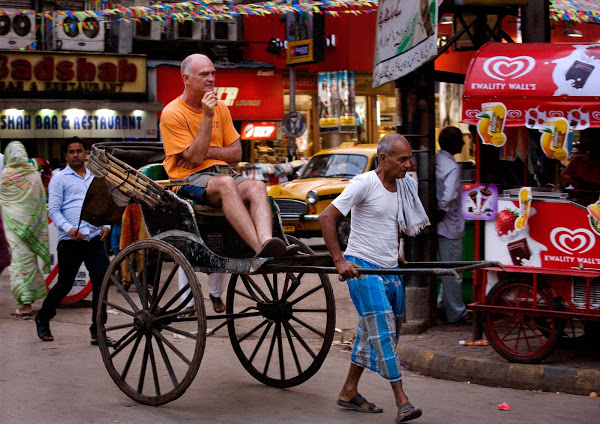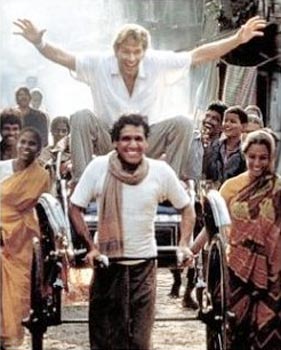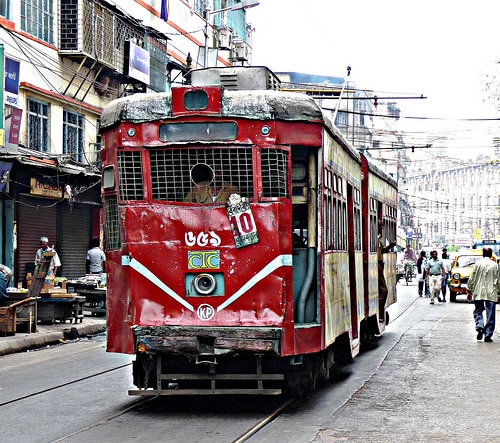Imagine yourself sitting five feet above the ground, slightly tilted backwards; reveling in the joys of soft swings and moves, left and right, front and back. You’re moving through the dingy lanes of the historic city of Calcutta and with a final jerk you reach your destination. As you are carefully lowered into a 45 degree angle, standing before you is a man – brawny, dark, perspiring, grasping for breath, seeking his share.
Welcome to Calcutta and for having successfully ridden one of its colonial transports: the hand-pulled rickshaw.

Did you like the experience? Well, probably you did. It is a unique experience; not to be found anywhere else in the country. But amidst the ‘joy’ and ‘fun’ of it lies a quaint brutality, an inhuman indulgence which speaks of our inability to do away with imperial arrogance and hangover of a colonial past.
The hand pulled rickshaw was first introduced in Shimla in late 1800’s and soon after in Calcutta and other parts of the country. A profession where labour was etched out on the lone body toiling to earn two square meals a day! Although, initially meant to transport goods, it later became a popular human transport.
But Is It Ethically Relevant?
Think about the toil: here is a body that is made to bear and pull the weight, double (sometimes triple) to that of its own! A relentless effort that sores the veins making them visible as they glare through the dark, perspiring skin, scorched under prolonged exposure to the sun.

However, this morally grounded standpoint is not acceptable to many who do not see a reason as to why the ‘body’ cannot be put to labour when on many occasions the ‘mind’ is pinned under inhuman labour in many blue-collar jobs! An age old debate between the ‘mind’ and the ‘body’: if employing the ‘mind’ to immense work pressures is not bothersome then why turn your face from employing the ‘body’?
When asked how he endures the physical pain and why he won’t look for an alternative means of livelihood, Mukul, a 47-year-old rickshaw puller replies indifferently, “Yes it is painful, especially in the summers. But what can be done? How can we change profession at this age? And we are uneducated. What other work can we do?”

Is A Ban Any Less Inhuman?
Today Calcutta is home to about 14,000 pullers earning their livelihood through this profession, and many more as owners and contractors.
The outright banning of this primitive mode of transport would trigger off another major problem – that of unemployment. A sudden ban would leave a large number of families poverty stricken. However, social workers are pushing forward the agenda of replacing these hand-pulled rickshaws by cycle rickshaws which would serve the interest of both parties!

A ban should be put to hand-pulled rickshaws only if the authorities are willing to dole out some kind of rehabilitation packages or alternate employment opportunities.
On a parting note, just when you have started developing a dislike for such prevalent colonial mode of mobility, it must be stated that all of it was not wrong! The Tram, another colonial vehicle but dutifully fulfilling the need of the hour – eco-friendly, cheap, devoid of traffic snarls. Like hand-pulled rickshaws, Trams too can now be discerned only in Calcutta, earning the status of a heritage transport!

May be instead of outright rejection of the colonial system of transportation, keeping the best and abandoning the archaic needs to be the focus!
So, what’s your opinion?

